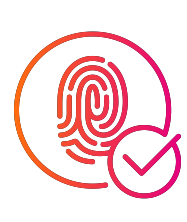Conversational AI and automation are rapidly modernizing today’s healthcare consumer experience. Using real-time data—including emotion, sentiment and intent analysis—AI-powered systems are substantially shortening and simplifying complex patient and member journeys. Healthcare service providers that have implemented these solutions are seeing significant returns on their investments with major improvements across all key metrics, including Medicare CMS and net promoter scores (NPS).
And patient satisfaction counts. According to a Forrester survey, 17 of the largest healthcare plans have an industry average score of 70.2 out of 100. That’s only “OK” according to industry standards—far below ideal. The same survey revealed that 34 percent of patients with the freedom to choose their own plans said they would switch based on a bad experience. In other words, better CX can improve patient retention.
For healthcare CX providers considering implementing conversational automation, prioritizing your goals and use cases is an essential first step. The hottest AI platform won’t deliver the results you want if it doesn’t align with your organizational needs. Before looking at technological capabilities, consider these top five evaluation criteria for conversational automation:

Call flow management
Long call times and complex processes have long plagued healthcare CX journeys, dragging down consumer and employee experiences alike. In fact, research shows that more than 70 percent of members believe shorter hold times would improve their engagement.* Conversational automation can accelerate call flows, using data collected from members’ speech to accurately populate forms and quickly facilitate next-best actions.

Member authentication
Protecting member privacy is of vital importance to healthcare service providers. Automating authentication prompts—and transcribing member responses—can improve accuracy and reduce process redundancies, like having to repeat the same information when transferring from self-service to a live representative.

Promise fulfillment
Healthcare consumers today not only demand fast, frictionless resolution to their requests; they also expect clear and timely post-call communications. Conversational AI can take note of promises made on calls and automate follow-up actions, like sending appointment confirmations, balance due reminders and claim status updates.

Compliance assurance
Healthcare service providers must comply with a litany of privacy, financial and medical disclosure guidelines. Unlike human compliance agents, artificial intelligence can quickly and accurately analyze 100 percent of interactions—including recordings and live conversations—and flag discrepancies, omissions or incomplete disclosures before they become bigger issues.

Employee efficiency
Healthcare CX employees have an enormous task: resolving a wide variety of member requests quickly, accurately and with empathy. By automating mundane tasks—like manual data entry and after-call work (ACW)—conversational automation can eliminate lengthy hold times and time-consuming call summarizations, freeing employees to focus more on what matters: member experience.
Just how much can conversational automation improve employee efficiency? A leading health insurance brand recently reduced its average handle time (AHT) by 20 percent and its ACW by a whopping 80 percent by implementing Uniphore’s AI-powered agent assistant platform, U-Assist. By automating the bulk of manual work—and improving its accuracy—Uniphore’s solution was able to increase first call resolution (FCR) and satisfaction rates and save the organization $6 million annually. That’s a serious improvement.
Want to learn more?
*Source: HealthPayerIntelligence, September 2021
)